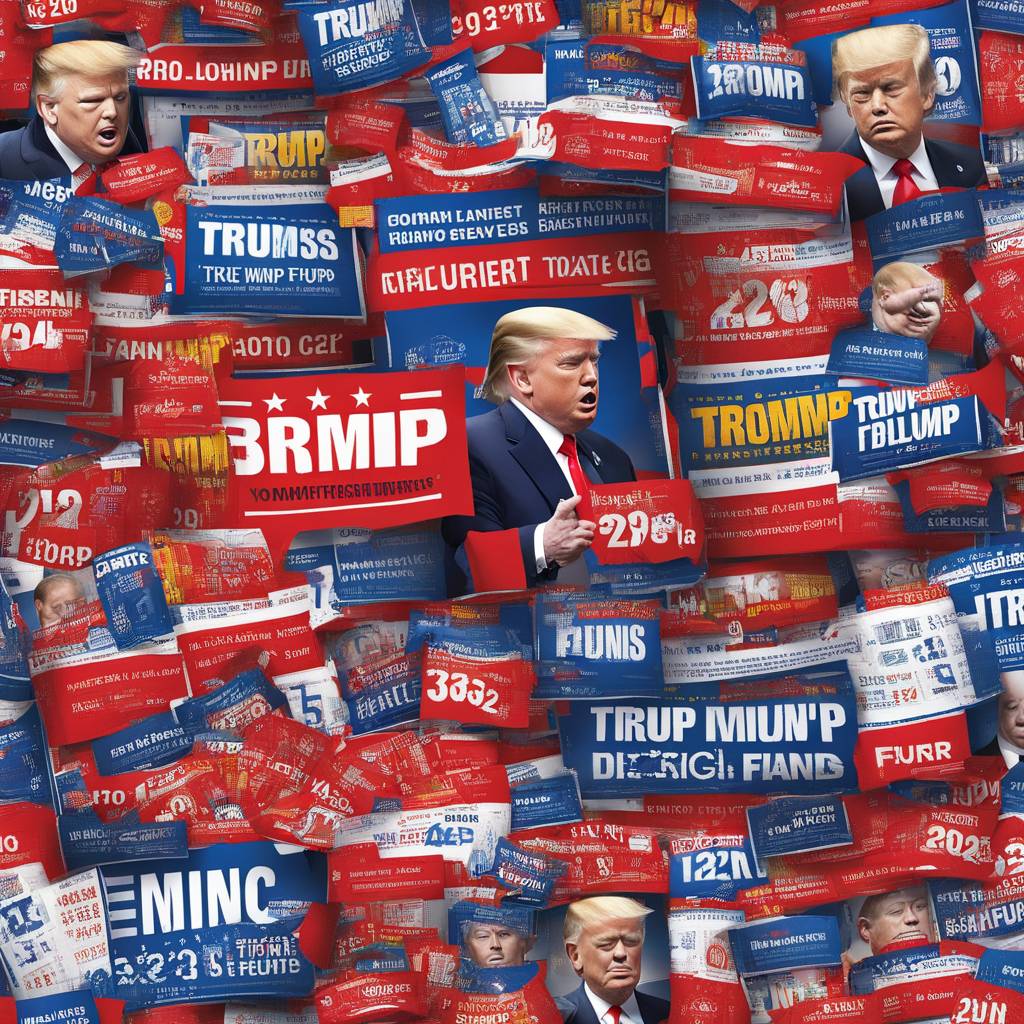A joint fundraising scheme engineered by former President Donald Trump allows his personal committee to collect nearly $32 million in donations from large-dollar donors that would have otherwise gone to the Republican Party. Under this arrangement, Trump’s “Save America” leadership PAC has become the second recipient of donations after Trump’s campaign, with the Republican National Committee receiving funds only after a donation exceeds $11,600. This setup has raised concerns among some Republicans, with critics calling the RNC a “money-laundering operation” for Trump while others argue that donors should have the choice to direct their funds where they see fit.
The Trump campaign has remained silent on how the joint fundraising effort will help with the payment of Trump’s legal bills, despite claims that the RNC would not be covering these expenses. Some RNC members have privately expressed discontent over having to support Trump’s legal fees, though others have defended the arrangement as making it easier for donors to contribute. The transparency surrounding these fundraising decisions is seen as crucial, with some supporters viewing Trump’s legal battles as partisan and unfair, leading them to want to direct funding towards his defense.
The amount of money Trump’s personal slush fund benefits from the joint fundraising agreement will depend on the number of donors contributing at least $6,600 to Trump 47. The potential for Trump to benefit greatly from this setup is significant, with an analysis revealing that his Save America committee could receive millions of dollars from donations exceeding $6,600. Trump’s ability to raise substantial amounts from his loyal followers, including small-dollar donors, also presents an opportunity for him to generate additional funds for his personal use.
Trump has faced numerous legal challenges in recent years, including a civil fraud lawsuit in New York that resulted in a $464 million judgment against him. He is also facing several criminal prosecutions related to his actions leading up to and on January 6, 2021, when supporters stormed the U.S. Capitol. These legal battles have necessitated the hiring of multiple lawyers to defend Trump in court, with potential trials looming in various jurisdictions based on charges ranging from fraud to sexual abuse.
Despite the legal hurdles Trump faces and the significant expense associated with his defense, the former president has continued to solicit donations from his supporters through emails and text messages. Trump’s fundraising efforts have been successful, with millions of dollars raised from small-dollar donors, and he has indicated plans to continue seeking financial support for his personal and campaign-related expenses. The allocation of funds from these donations has drawn scrutiny from critics who question the ethics of using political funds for legal defense in the face of multiple legal challenges.








